Nutrition is a cornerstone of overall wellness, and its importance becomes even more pronounced during addiction recovery. Substance use often depletes the body of vital nutrients, impairs digestion, and compromises immunity. Recovery is not just about abstaining from substances—it’s about rebuilding your physical, emotional, and mental health. Thoughtful nutrition is a powerful ally in this transformation, giving your body the support it needs to heal and thrive.
7 Ways Nutrition Helps Addiction Recovery

1. Replenishing Depleted Nutrients
Individuals recovering from substance use frequently face nutritional deficiencies that can affect long-term health. For instance, alcohol can lower levels of B vitamins and folate, while opioids may reduce vitamins A, D, E, and K. A balanced diet filled with fruits, vegetables, whole grains, lean protein, and healthy fats helps restore these nutrients, laying the foundation for both physical healing and emotional stability.
2. Balancing Mood and Managing Cravings
The food we eat significantly influences brain chemistry, impacting mood and cravings. Complex carbs help regulate blood sugar, minimizing irritability and emotional swings. Omega-3-rich foods—like walnuts and fatty fish—support brain health and may ease anxiety and depression, common in early recovery. In addition, protein, fiber, and healthy fats contribute to satiety, reducing the impulse to snack on sugar-laden foods that lead to crashes and increased cravings.
3. Enhancing Focus and Cognitive Function
Recovery demands mental clarity and resilience. Nutritious foods enhance cognitive function and brain health, making it easier to stay focused and engaged. Antioxidant-rich foods—such as leafy greens, berries, and lean proteins—help protect brain cells and boost mental performance, essential tools for navigating triggers and building new habits.
4. Sustaining Natural Energy
Fatigue is a frequent challenge in recovery, often leading people to reach for caffeine or sugar. While these offer quick fixes, they usually result in energy crashes. Instead, consistent energy can come from a diet rich in whole grains, fresh produce, and lean proteins. This nutritional approach supports steady activity levels, improves motivation, and helps you participate more fully in recovery activities and therapy.
5. Healing the Gut
Substance use can disrupt gut health, causing inflammation, digestive problems, and lowered immunity. A healthy gut microbiome is crucial to overall health, influencing everything from mood to immune response. Foods high in fiber, fermented options like yogurt and kimchi, and probiotic supplements help restore balance to your gut, supporting both digestion and immune function.
6. Establishing Positive Routines
Beyond physical health, nutrition can foster new, empowering routines. Preparing and planning nutritious meals can bring structure, mindfulness, and a sense of control to your day—qualities that are essential in recovery. Many individuals find joy in cooking and meal prep, making these rituals an integral part of their new, healthy lifestyle.
7. Supporting Long-Term Recovery and Relapse Prevention
Good nutrition can be a powerful tool in preventing relapse. When your body is well-nourished, you’re less prone to cravings, mood swings, and exhaustion—all of which can be triggers. Staying hydrated and eating regularly also promotes blood sugar balance and emotional stability, providing the strength and focus needed to maintain recovery momentum.
Simple Nutrition Tips for Recovery
To make nutrition a meaningful part of your recovery, try these practical strategies:
- Eat the Rainbow: Aim for a variety of colorful fruits and vegetables to cover a broad spectrum of nutrients. Prioritize leafy greens, vibrant berries, and orange vegetables.
- Prioritize Lean Proteins: Support muscle repair and energy with fish, poultry, eggs, legumes, and beans.
- Choose Whole Grains: Opt for quinoa, oats, and brown rice for sustained energy and balanced blood sugar.
- Hydrate Consistently: Water is vital to detoxification and digestion—drink it throughout the day.
- Add Healthy Fats: Avocados, seeds, nuts, and olive oil are excellent sources of brain-boosting fats.
- Avoid Processed Foods: Minimize refined sugar and processed snacks in favor of whole, fresh foods for stable energy and mood.
Get Nutrition Guidance in North Andover, MA

Recovery is a comprehensive journey, and nutrition is a key part of that path. By nourishing your body with the right foods, you strengthen your capacity to heal, grow, and maintain long-term wellness. Start with small, manageable changes—try new recipes, experiment with fresh ingredients, and discover the power of food as a tool for transformation.
At Luna Recovery for Women, we understand that true recovery goes beyond breaking a habit—it involves nurturing the whole person. That’s why we incorporate nutritional support into our treatment plans. Our team is here to help you build a healthier future with compassionate care and personalized guidance. Reach out today to learn more about how we can support your wellness and recovery goals.
Contact us anytime at (855) 943-0472 or info@lunarecoverycenter.com, or visit us at 1270 Turnpike St, North Andover, MA (01845).


